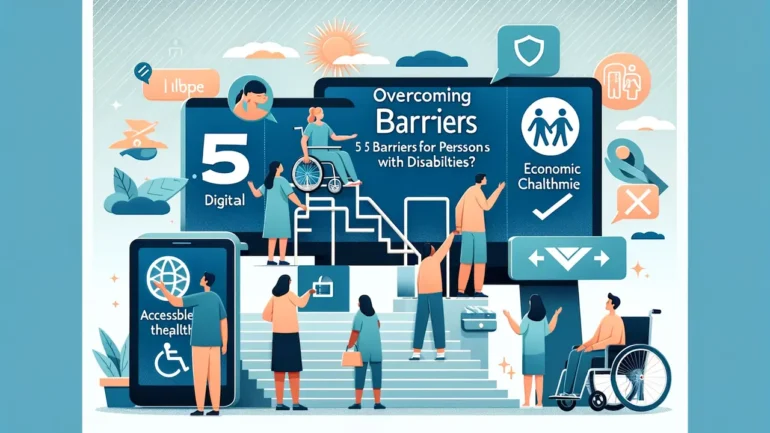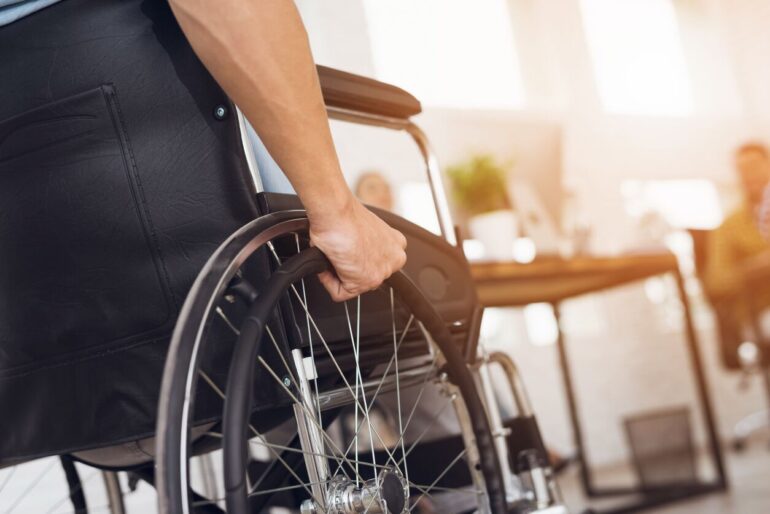The legal system is crucial in protecting the rights and well-being of citizens, but it often falls short when it comes to handling disability claims. Many individuals with disabilities face challenges in navigating the legal system, which is often complex and unresponsive to their unique needs.
These issues highlight the need for reform to make the legal system more accessible, fair, and efficient for handling disability claims. This article examines why reform is necessary and how it can benefit individuals with disabilities. If you need legal assistance, a Hamilton Personal Injury Lawyer can offer guidance.
Barriers to Access

People with disabilities often face significant barriers when trying to access the legal system for their claims. These barriers include physical obstacles, communication challenges, and complicated legal procedures. For example, courtrooms and legal offices may not be physically accessible, making it difficult for individuals with mobility impairments to participate in legal proceedings.
Additionally, individuals with hearing or vision impairments may struggle to communicate effectively with legal professionals or understand complex legal documents. These barriers prevent individuals with disabilities from fully participating in the legal process and asserting their rights.
Lack of Awareness and Training

Legal professionals, including judges and lawyers, may lack awareness or training on disability issues, leading to misunderstandings and biased decisions. Without proper training, legal professionals may not understand the unique challenges faced by individuals with disabilities or may hold negative stereotypes about disability.
This lack of understanding can result in unfair treatment and decisions that do not reflect the best interests of individuals with disabilities. Reforming the legal system to include disability awareness and training for legal professionals can help address this issue.
Complex Legal Procedures
The legal system is often complex and difficult to navigate, especially for individuals with disabilities. The process for filing disability claims can involve multiple steps, complicated paperwork, and strict deadlines, which can be overwhelming for individuals with cognitive or learning disabilities.
Additionally, legal jargon and technical language can be confusing for individuals who may have difficulty understanding complex information. Simplifying legal procedures and providing clear, accessible information can help make the legal system more user-friendly for individuals with disabilities.
Inadequate Legal Representation

Many individuals with disabilities do not have access to adequate legal representation, which can negatively impact the outcome of their claims. Legal representation is crucial for navigating the complexities of the legal system and advocating for the rights and interests of individuals with disabilities.
However, legal services can be expensive, and many individuals with disabilities cannot afford a lawyer. Increasing access to affordable legal representation, such as through legal aid or pro bono services, can help ensure that individuals with disabilities receive fair treatment in the legal system.
Bias and Discrimination

Bias and discrimination against individuals with disabilities are prevalent in the legal system, impacting the fairness of legal proceedings and the outcomes of disability claims. This discrimination can stem from negative stereotypes or misconceptions about disability and can result in unfair treatment or decisions that do not accurately reflect the abilities or needs of individuals with disabilities.
Reforming the legal system to address bias and discrimination, such as through anti-discrimination policies and training, can help create a more equitable legal system for individuals with disabilities.
The Role of Advocacy
Advocacy plays a crucial role in reforming the legal system for handling disability claims. Disability advocacy organizations and activists work to raise awareness of the issues faced by individuals with disabilities and advocate for changes to the legal system.
These efforts can include lobbying for legislation, providing legal assistance, and raising public awareness of disability issues. Supporting and empowering disability advocacy can help drive reform and create a more inclusive and equitable legal system.
Conclusion
The legal system plays an important role in protecting the rights and well-being of individuals, but it often falls short when it comes to handling disability claims. Barriers to access, lack of awareness and training, complex legal procedures, inadequate legal representation, bias, and discrimination all highlight the need for reform.
Addressing these issues and creating a more accessible, fair, and efficient legal system can benefit individuals with disabilities and ensure that their rights are protected.
